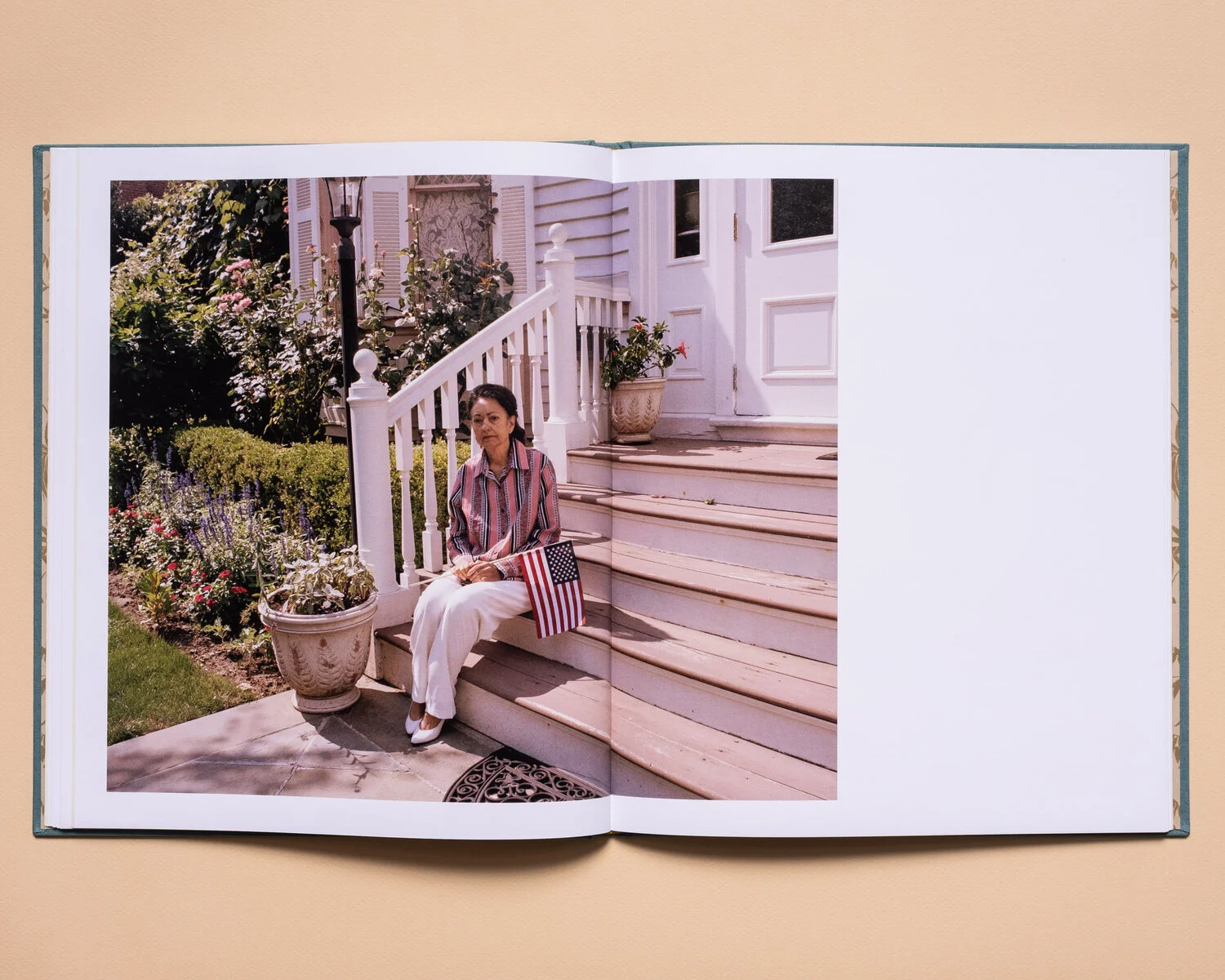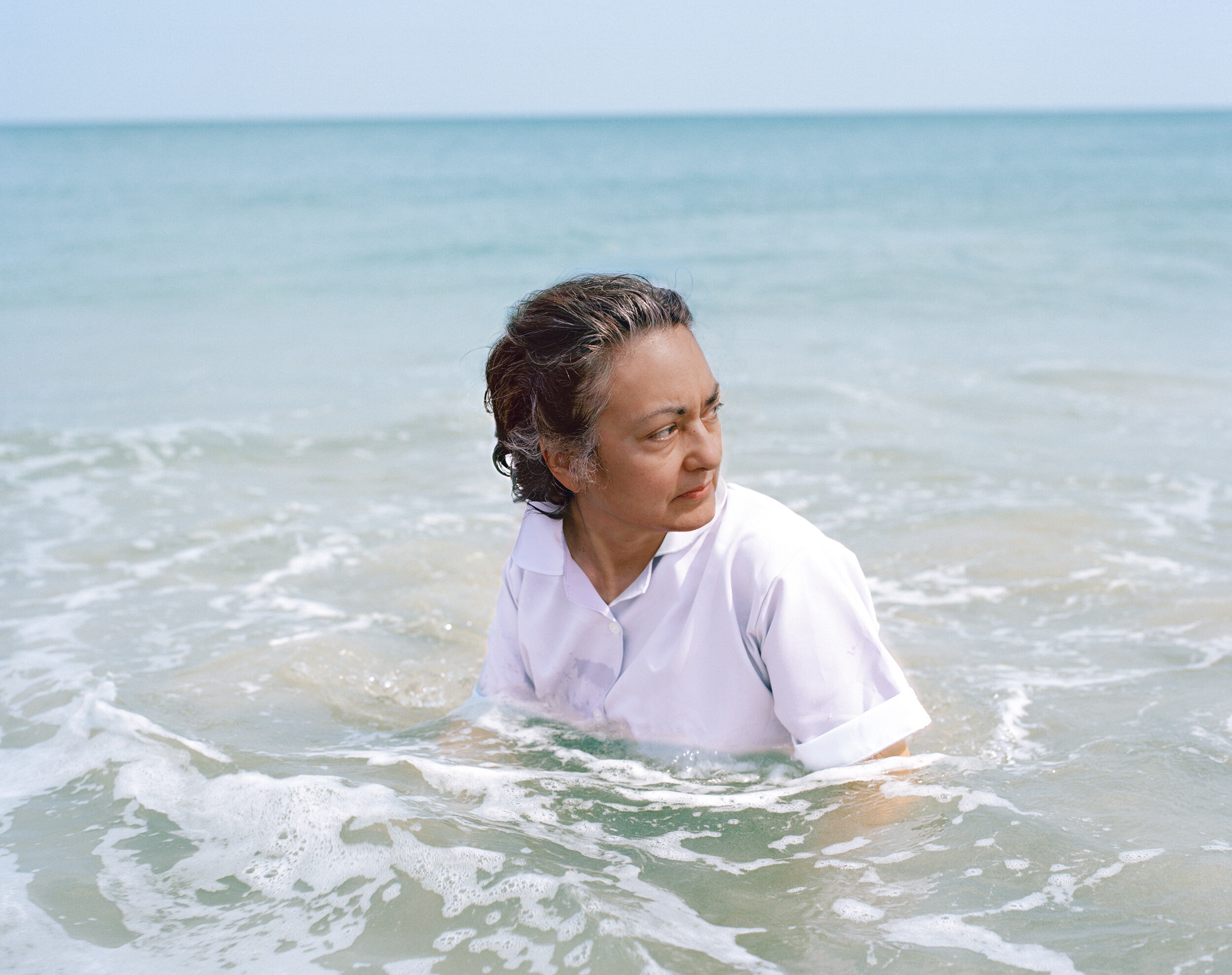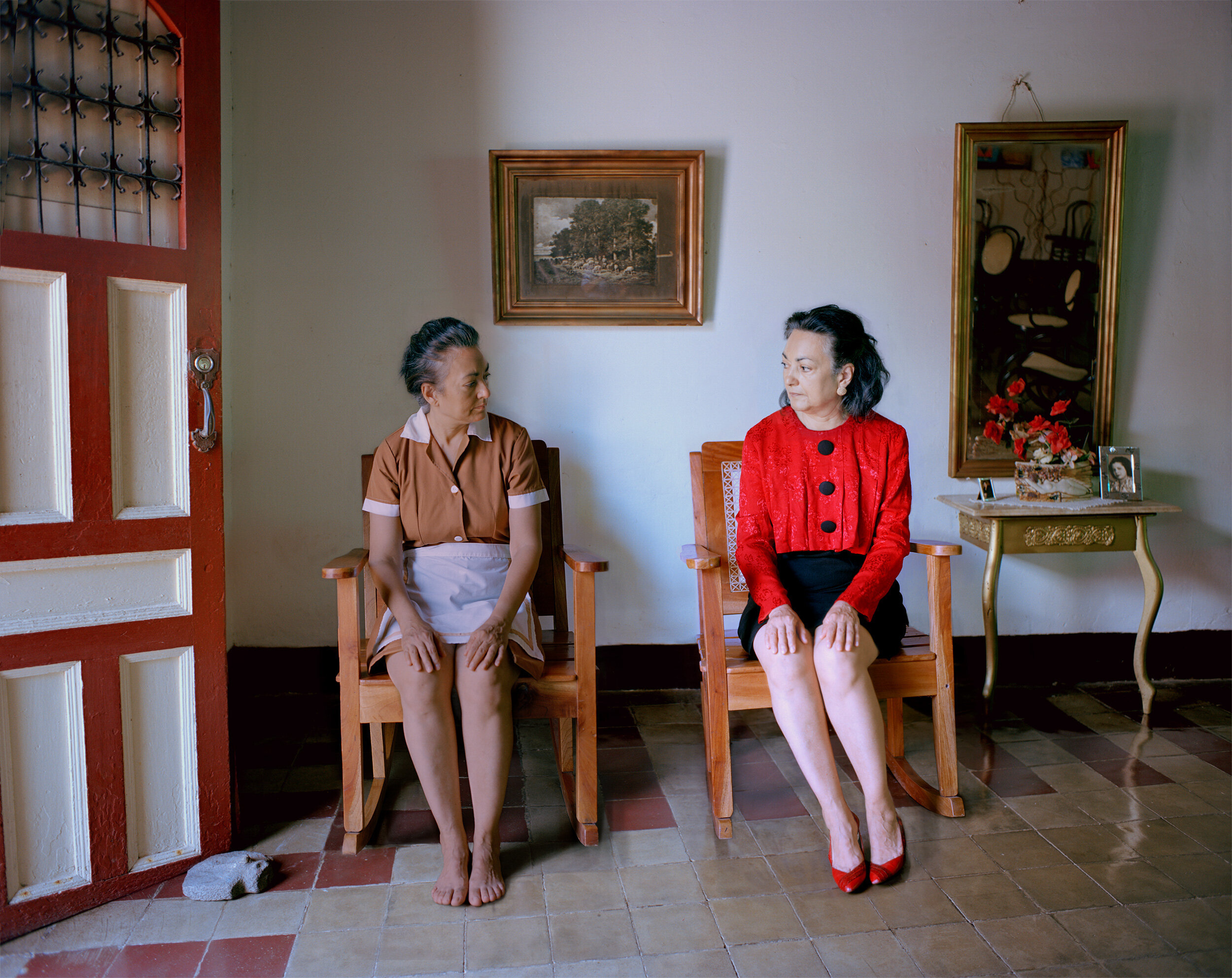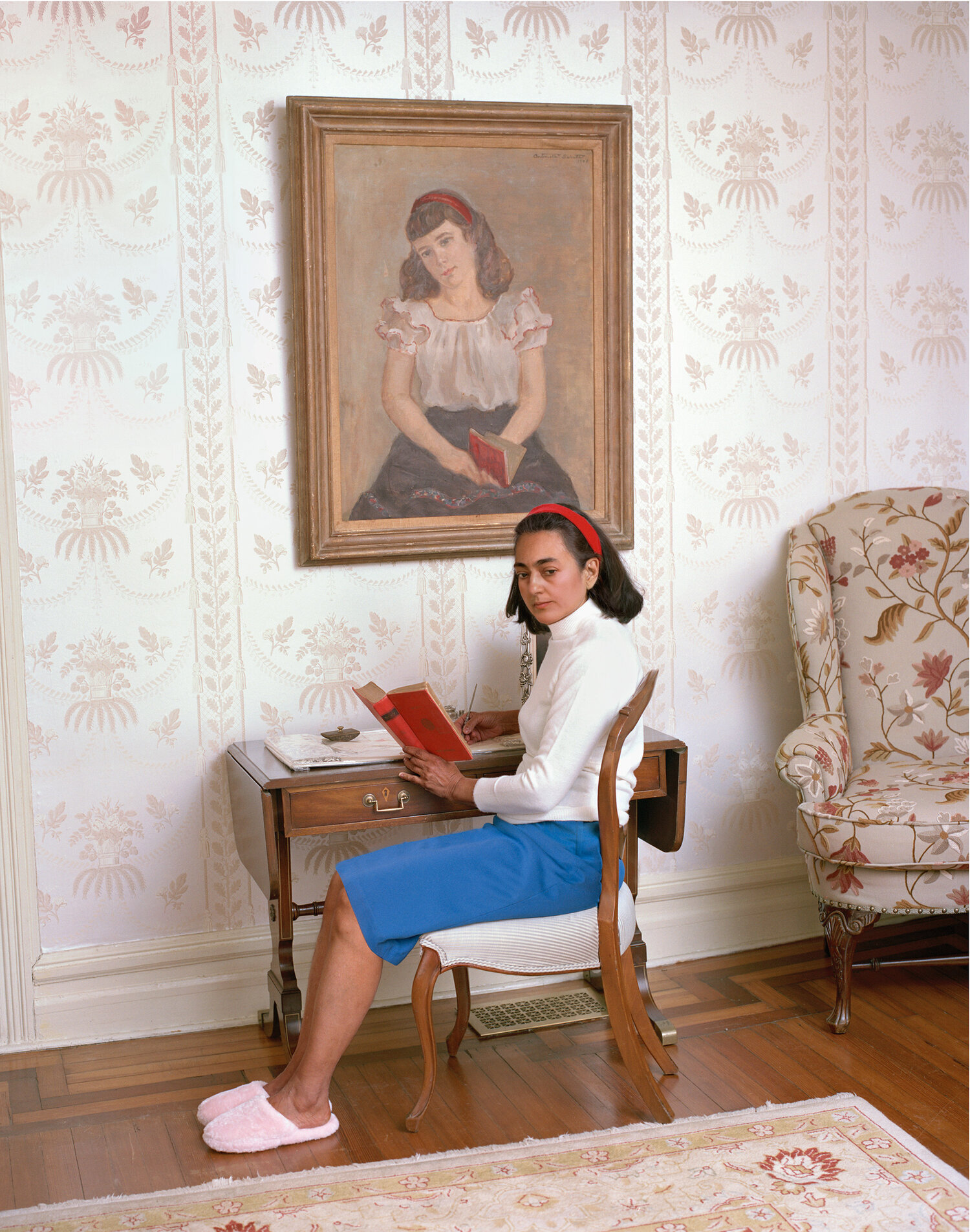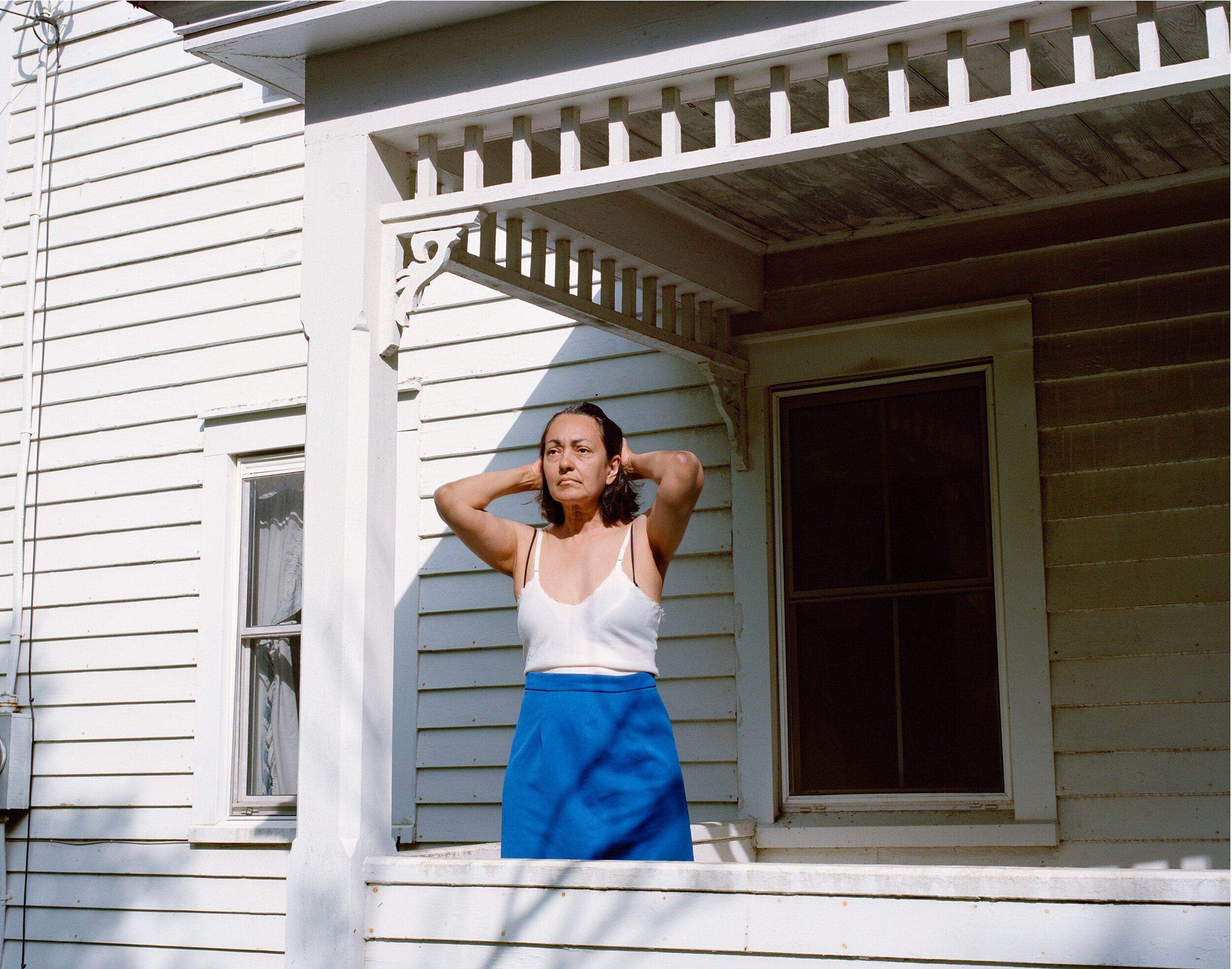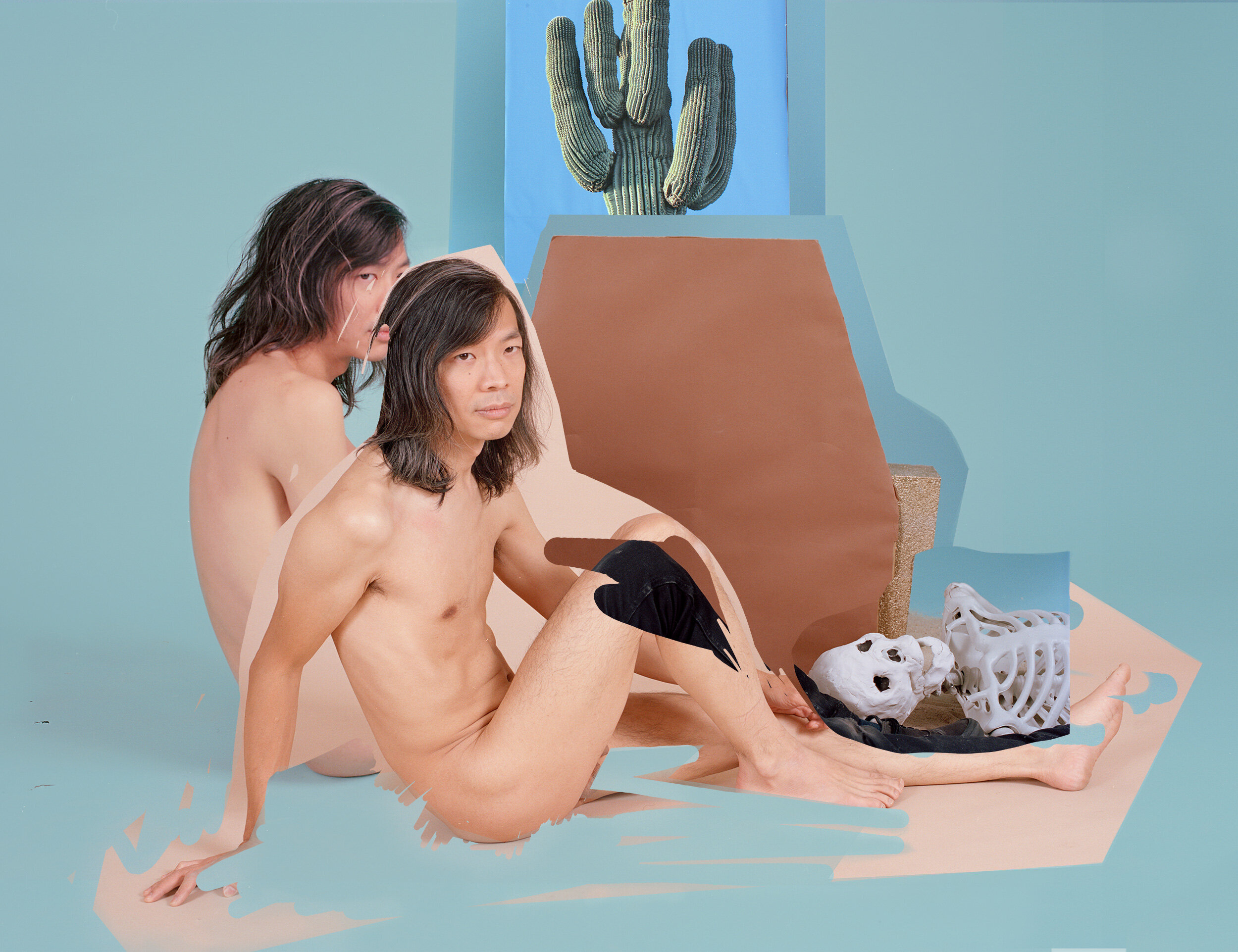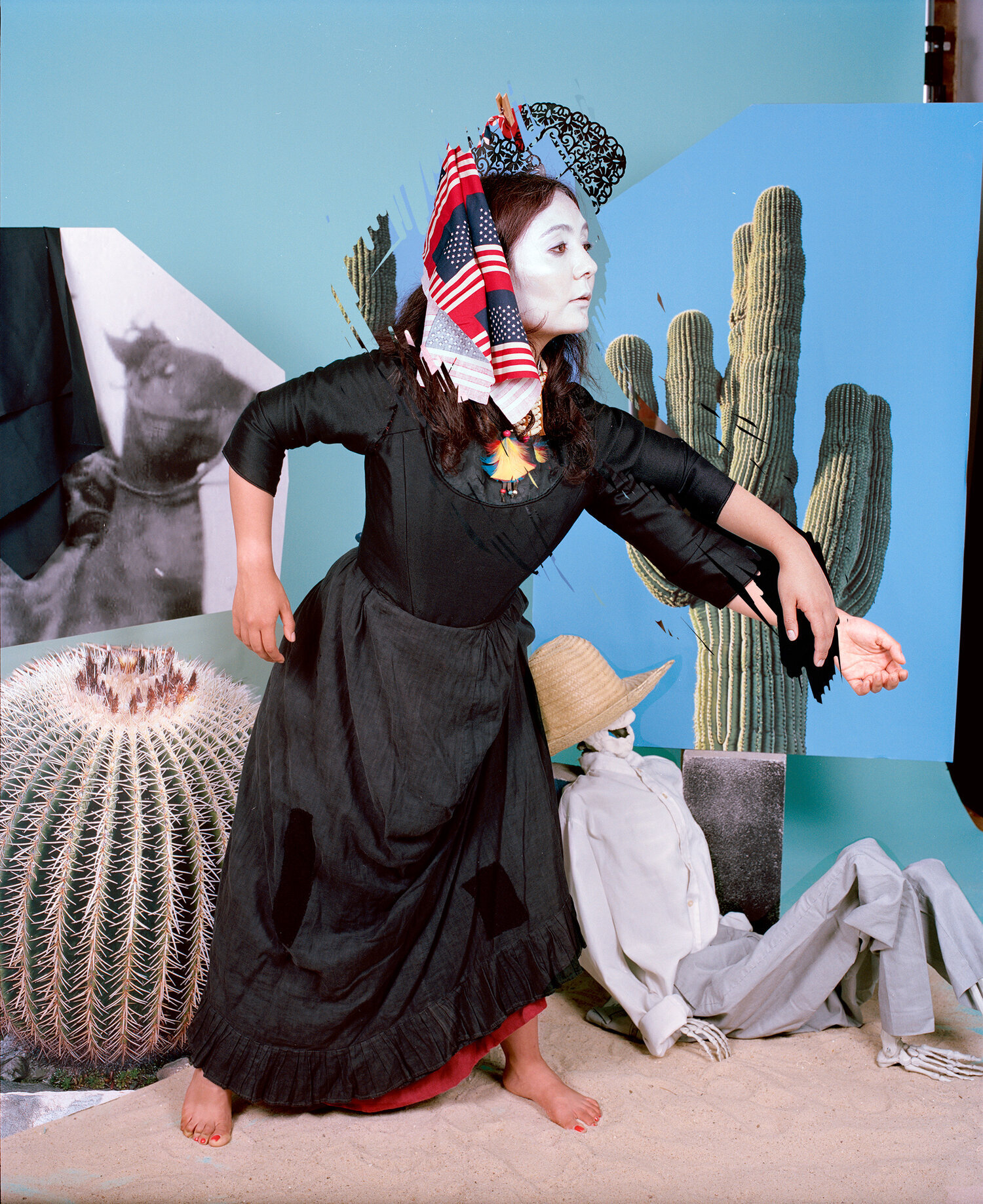Q&A: Rachelle Mozman Solano
By Rafael Soldi | April 29, 2021
Rachelle Mozman Solano grew up in New York City and works between New York and Panamá, the country of her maternal family. Starting often from her biography and family history Mozman explores how the intersection of history, class and race forms individual experience. Her work is concerned with the convergence of ideology, mythology, economics and the psyche, through photographs and films that explore narrative as inherent to humanity and shaped by perception. Mozman’s art is deeply informed by her clinical work in psychoanalysis. In 2020 Mozman will release her monograph, Colonial Echo with Kris Graves Projects. In 2019 she had a solo exhibition, Metamorphosis of Failure at Smack Mellon, Brooklyn, NY, and in 2018 she exhibited El espejo opaco de Gauguin in Arteconsult, Panamá, Panamá. Mozman has been awarded residencies at LMCC workspace, Smack Mellon, The Camera Club of New York, and Light Work. Mozman has been awarded the NYSCA/NYFA Artist Fellowship, the NYC Film and Media Grant from the Jerome Foundation and others. Her work has been published in the Light Work annual Contact Sheet, Presumed Innocence, Exit magazine and numerous other publications.
Mozman is a Fulbright Fellow, and has exhibited at El Museo del Barrio, the National Portrait Gallery at Smithsonian Institution, Washington D.C, the Americas Society, New York, New York, National Hispanic Cultural Center, Albuquerque, New Mexico, The Studio Museum in Harlem, New York, New York, the Chelsea Museum, New York, New York, The DeCordova Sculpture Park and Museum, Lincoln, Massachusetts, the Museum of Latin American Art, Long Beach, California, the Shore Institute of Contemporary Art, Long Branch, New Jersey, Festival de la luz at the Centro Cultural Recoleta, Buenos Aires, Argentina the Instituto Cultural Itau, São Paulo, Brazil, the Friese Museum, Berlin, Germany, the Museo Nacional de Bellas Artes, Santiago, Chile, Museo Nacional de Artes Visuales, Montevideo, Uruguay, Centro Cultural de España, Mexico City, Mexico, Festival Biarritz, Biarritz, France, as well as the IX Bienal de Cuenca, Ecuador.
Rafael Soldi: Hi Rachelle, thanks for chatting with us. Strange Fire’s exhibition, An Active and Urgent Telling, centers the lived experiences of the artists in the exhibition, all of whom are non-white women. Your work not only embodies your own lived experience, but also that of the women who came before you—principally your mother. I’m curious about this intergenerational approach to unwrapping identity. Are these images solely about you, or your mother, or about a collective, intergenerational identity?
Rachelle Mozman Solano: I was always interested in the exploration and presentation of my biography and family history as a way to speak to the collective and the experience of intergenerational identity. I was fascinated by my mother, aunt, and grandmother growing up, and felt them to be very enigmatic. There was a street-smart quality to them, that I associate with the Caribbean, but there was also struggle with depression and self-esteem that I connect to economic hardship. I had a realization years ago that it could all be traced back to colonialism, first by the Spaniards, then by the U.S. I wanted to speak to the women’s stories in my family to address this and the internalization of shame and trauma born from racial and economic inequity connected to colonialism. Because of my training as a psychoanalyst, I am fascinated and obsessed with intergenerational and internalized feelings, and the repetition of experience and trauma. This is the reason why I have focused on intergenerational identity in much of my work.
RS: Though you often reference your family’s history in Panamá, I find that your work more often meditates on American identity. Even reading the conversation in your book between your mother and her mother, America and Americans come up (more specifically in the context of Whiteness). What is so appealing about probing the American psyche?
RMS: A part of the lens in which I view American culture and identity in my work is based on Panamá being controlled by the U.S. government for many decades. The Americans created a segregated system in Panama, with a gated community called the Canal Zone. This segregation formed a psychological hierarchy and internalized feelings of inferiority and again, shame. It was based on white supremacist beliefs the Americans established, and these feelings were part of the psyche of my family. This is a deep foundational relationship to US identity and whiteness. Because I was born in the US and grew up as many children of immigrants, living within two worlds, one inside the home and one outside. I felt both inside and outside of American assimilation, whereas I recognize my mother never felt she could assimilate. A part of me identified with my mother, and a part of me identified with the American culture in which I was born and grew up. These modes of identification are a part of my work.
Colonial Echo, by Rachelle Mozman Solano, published by Monolith Editions
RS: Perhaps building on the layered, multigenerational idea—your projects too seem to build on one another. Can you share more about how your work organically grows onto itself? It seems like each project in some way riffs on the last.
RMS: I agree that I feel my projects are very connected and in conversation with one another. In some projects I feel I am continuing a conversation left off in the last project. I rarely, if ever, jump into something completely unrelated. I see all my work as inter connected.
RS: In your earlier work you collaged and layered narratives within a more traditional photographic framework. Even in the instances in which you were compositing images, this work was invisible from a formal perspective. Your newer work embraces material layering and collage in a more overt way, often interacting with bodies portrayed in both video and photography. How did this formal shift come about? What does it reveal about your process and subject matter?
RMS: I have always been interested in the act of piecing together fragments—which I define as collage. Earlier the piecing together in the effort to appear seamless gave me tremendous psychological relief, like putting together something that wasn’t supposed to fit, and then seeing it could hold. In the last years I have grown more interested in the pieces themselves as fragments that appear to be living on their own and also as parts of a greater organism. My original interest in fragmentation that lead me to collage and strive for seamlessness has grown into an acceptance of my interest in fragmentation, and a comfort in living with the pieces.
RS: Let’s talk about performance, too. Performance is present in your work almost from the very beginning. Again, it begins in subtle ways—in the early work the subjects appear to be performances of themselves. Later you embrace performance in a more narrative way, perhaps more akin to cinema. And most recently the performance is conspicuous, made visible—the curtain is pulled, the performance itself is a subject.
RMS: Performance as a subject developed for me in my interest in portraiture and biography, what is conscious and what is revealed through the optical unconscious. Particularly of interest to me were the emotions that bubble up and become reflected somatically through the body and gesture that the camera is adept at seeing. I see the uncomfortable space between the photographer and the subject as performative. In recent years, connected to my studying psychoanalysis and my clinical practice, I grew more interested in this revealing of the unconscious through language and words. Unconscious emotions that are hidden or that become revealed is fascinating to me-and it is most fascinating when it comes through the body and language. Recently in my film pieces, working with performers who interpret texts founded in the document, for example, texts of Gauguin from his book, Noa Noa, or more recently, transcribed interviews of my mother, were a way to explore the interpretation of the unconscious in the lives of real people and their stories. Through interpretation I am able to explore perception, and it is through performance that I am most recently examining perception and the stories of marginalized people.
RS: Thank you, Rachelle for sharing with us. Is there anything coming up that you’d like to point us to?
RMS: My recent film, All These Things I Carry With Me, which is a portrait of my mother and her experiences migrating to the US in the late 1960’s, her isolation and the microaggressions, she experienced. Through verbatim interviews that were transcribed and performed by Carolina Solano, I was able to explore my mother and my interpretation of her feelings stored in the body and in gesture. The film addresses my fascination in somatic moments that reveal the unconscious and our use of language, bringing to the surface, our deep emotion. The film will be in a solo exhibition this fall at the South Bend Museum in Indiana.
